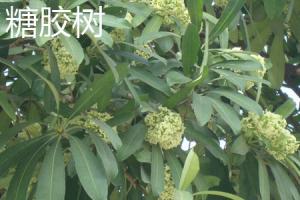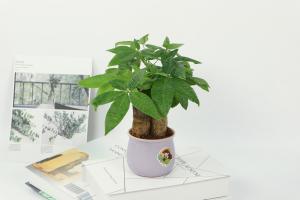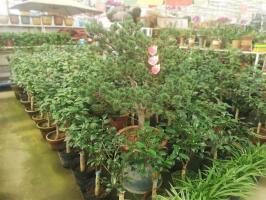Introduction
Petunia plants are decorative plants that are popular in home gardening. However, it can be frustrating when the plant grows beautifully but stops flowering. In this article, we will explore the reasons why potted petunia plants may stop flowering and how to revive them.
Lack of sunlight
Petunia plants require full sunlight to bloom. Without enough sunlight, the plant may grow but will not produce flowers or produce very few flowers. If your potted petunia plant is not placed in an area with direct sunlight for at least 6 hours a day, consider relocating it to a sunnier spot. Alternatively, if direct sunlight is not available, you can use grow lights to supplement the light.
Inadequate water and nutrients
Petunia plants need consistent moisture and nutrients to thrive. If the soil in the pot is too dry, the plant may stop flowering. On the other hand, if the soil is too wet, it can lead to root rot, which can also cause the plant to stop blooming. The plant also requires appropriate feeding with fertilizers containing a balanced mix of nitrogen, phosphorus, and potassium. Follow the instructions on the fertilizer package to determine the appropriate frequency for feeding your plant.
Pests and diseases
Petunia plants are susceptible to pests and diseases, which can cause harm to the plant and affect its blooming. Common pests that affect petunias include aphids, spider mites, and whiteflies, while diseases such as powdery mildew and root rot can also cause harm. Regularly inspect and treat the plant if you notice any signs of pests or disease to avoid stunting its growth and blooming ability.
Age of the plant
Petunia plants have a lifespan, and as they age, their blooming ability decreases. If your petunia plant is more than a year old, it may not produce as many flowers as it used to. Consider replacing the plant with a new one to ensure continuous blooming in your garden.
Inappropriate temperature
Petunia plants prefer moderate temperatures between 60 and 70 degrees Fahrenheit. If the temperature is too low or too high, the plant may not produce blooms. If your potted petunia plant is placed near a window that is not well insulated, it may be exposed to extreme temperatures that can affect its blooming ability. Consider moving the plant to a location with a more consistent temperature.
Conclusion
Understanding the reasons why potted petunia plants may stop flowering is key to reviving them. With the right care, including providing sufficient sunlight, water, and nutrients, treating pests and diseases, and ensuring an appropriate temperature, your petunia plant should bloom beautifully all season long.

 how many times do yo...
how many times do yo... how many planted tre...
how many planted tre... how many pine trees ...
how many pine trees ... how many pecan trees...
how many pecan trees... how many plants comp...
how many plants comp... how many plants can ...
how many plants can ... how many plants and ...
how many plants and ... how many pepper plan...
how many pepper plan...
































